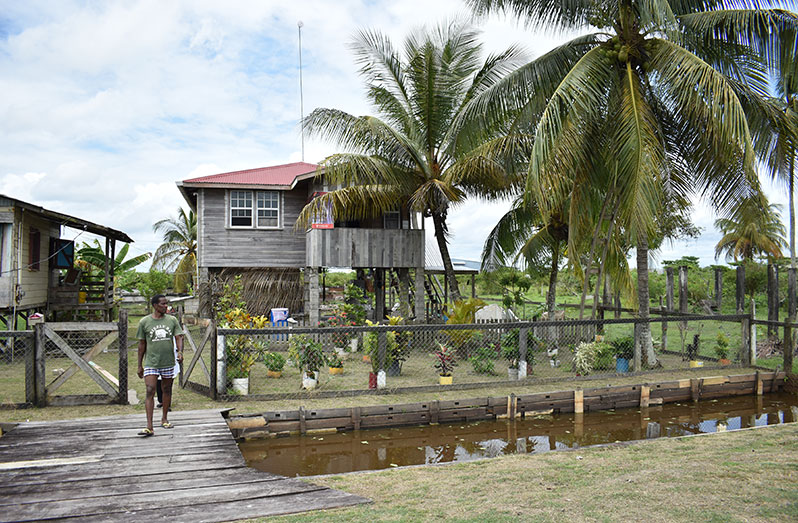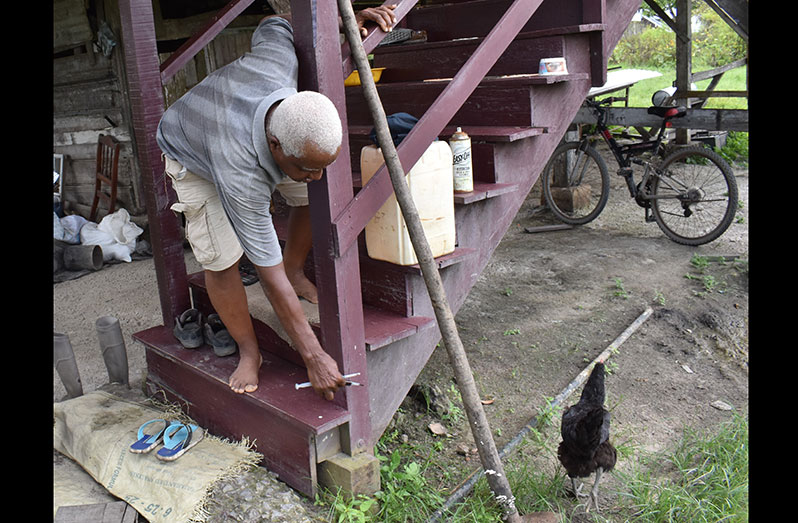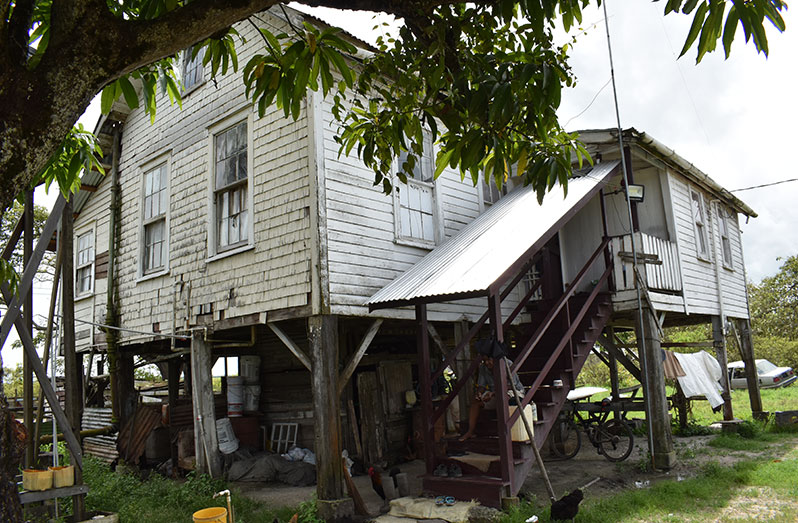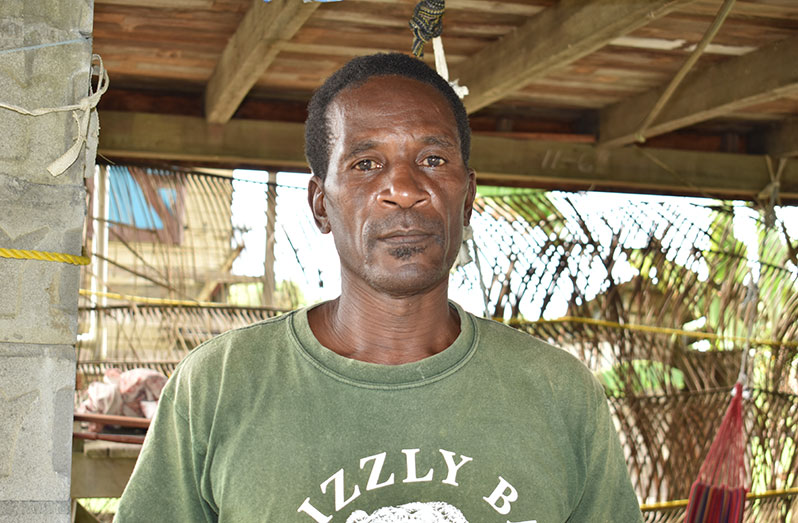IVOR Hamilton has one of the tidiest yards in Burma Housing Scheme, West Coast Berbice and he is a contractor-turned-weeder, who would ensure that his surroundings are well-kept.
The 61-year-old has aged like fine wine, as the saying goes, and is also a poultry and livestock farmer who returned to Guyana last year from Canada after some time.
“I came home for a while but due to the pandemic, I am unable to return to Canada, so here I am trying to work and live locally, home, my country,” he said.
The father of six is a humble, well-respected elder in the village, who has been there for the past 27 years.

He started from a small, wooden cottage, where one of his daughters reside now and built a bigger house on the same plot from scratch and he did it all by himself.
Hamilton told the Pepperpot Magazine that Burma is a peaceful, quiet place when it comes to security and independence.
He disclosed that Burma Village is a housing scheme developed by the late President Linden Forbes Burnham for ricemill workers, who used to journey from all over for work in the community when the government owned the rice mill.
Hamilton added that houses were built for the workers and plots allocated, but to date, some people are still not occupying the land.
“Opposite my house is the school and a playground; we had a sports club and a guesthouse,[but] both buildings are gone and we also had a market,” he said.
Hamilton recalled back in the days, his wife was the caretaker of the guesthouse when the rice mill was government-owned and employed hundreds of people.
He stated that the houses constructed by the then government was colonial-style wooden buildings and today, only two of those houses are left but are aged.
Hamilton explained that after the rice mill went into receivership, a lot of the houses were sold and sections of the rice mill were left to rot.
“My step-father, Morgan Allicock was the co-founder of this village and the chairman, but he passed away a month ago at age 93 years old and he played a vital role in the development of the community,” he said.
Hamilton told the Pepperpot Magazine that the outskirts of the village are used for large-scale rice cultivation and wasn’t really affected by the flood, but the village itself was inundated.
He noted that he lost some cows, ducks, goats, creole fowls, and only two meat birds survived from more than 40.
The farmer reported that Burma is a rice-producing area, but locals don’t do the rice cultivation and some people would get work with the rice farmers to throw rice, but he never worked with them.
When Hamilton is not building houses, he is weeding yards for a living and still has to take care of his cattle and poultry.
“I used to work with the NDC as a CIIP worker when there was [sic] five of us, but it cut down to just two and I was paid for three months then my contract wasn’t renewed, so I had to find work,” he said.
Hamilton describes life in Burma Housing Scheme as very safe, since the people do not take anything that doesn’t belong to them.
Hutton Chichester
Meanwhile, Hutton Chichester is a resident of Burma Housing Scheme and he lives in one of the two colonial-style houses.

He bought the property when the rice mill was privatised and has been living in the village for 43 years.
The 65-year-old told the Pepperpot Magazine that he is a cash-crop farmer and he rears some meat birds and creole fowls.

He was one of the rice mill workers and he left his home village of central Mahaicony to live and work in Burma.
Chichester stated that these days he is retired and would do some taxi work in the village and tend to his animals and garden.

